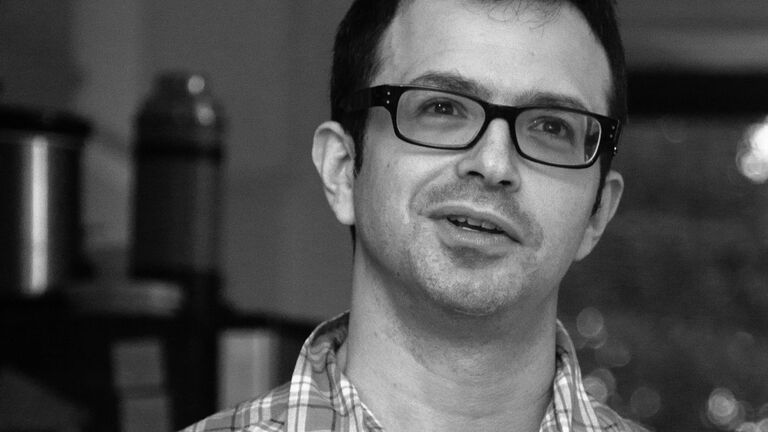
Q&A with Daniel Borzutzky
Alum and faculty member Daniel Borzutzky’s (MFA 2000) collection of poetry The Performance of Becoming Human was recently nominated as a finalist for the National Book Award. Borzutzky is a writer, translator, and educator who teaches courses in Latin American and US Latinx literature at SAIC. In his own work, Borzutzky examines the connections between Latin American and US societies. In this Q&A Borzutzky talks about his days at SAIC and how it feels to be a National Book Award finalist.
What was your experience like in SAIC’s Department of Writing?
I didn’t know what I was doing at all when I started graduate school at SAIC. I knew I wanted to be a writer. But I didn’t know what that meant. There were a few people who really took my work seriously, and took seriously my desire to be a writer. Two of my very best friends, Amina Cain and Adam Novy were students with me in the Writing program at SAIC. They are both tremendous writers, and wonderful human beings and they both remain a vital part of my life. I don’t know who I would be now without them. There were certainly some teachers at SAIC who helped me figure out new ways of writing, new ways of reading and new ways of conceiving the possibility of how to be an artist and a good person. For this I am very grateful.
How have you seen SAIC change since you began teaching here?
In the few years since I have been teaching in Liberal Arts I have noticed an increase in the number of Latinx students both from the US and Latin America. It’s been exciting to see the ways in which these students are forming student groups and alliances and venues to display their art. I hope to see the continued evolution of SAIC into a school that truly supports diversities of experience and multilingualism in vigorous and innovative ways.
How did it feel to be nominated as a finalist for the National Book Award?
The National Book Award was not even on my radar until I was named to the long list in September 2016. This book is really the only small press publication to appear among the nominees, and I am extremely happy about the attention it has brought to Brooklyn Arts Press. It was a great surprise, and it’s a great honor to be among the finalists for the award. But of course there are many other writers who deserve to be recognized in this way, and prizes should not serve as definitive standards of taste or quality.
The nicest thing thus far about being a finalist is knowing that more people are reading my book. This week I was contacted by a high school student in South Carolina who told me that she was assigned to discover a contemporary poet and introduce the poet to her class. She told me she learned of my work because of the National Book Award nomination, and she asked me to speak with the class by Skype. These kinds of invitations are humbling and gratifying.
